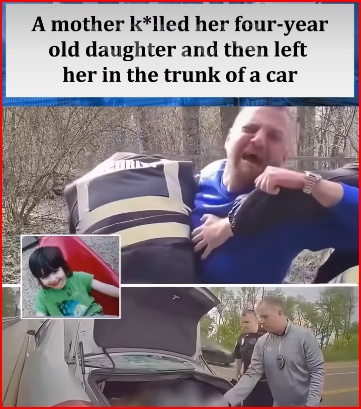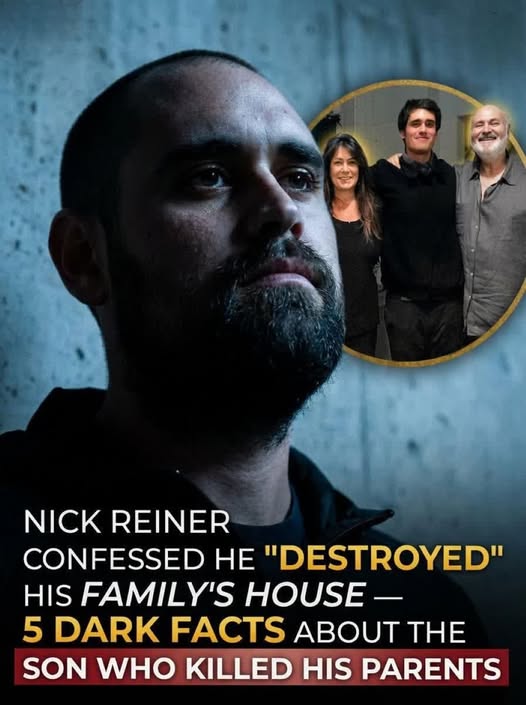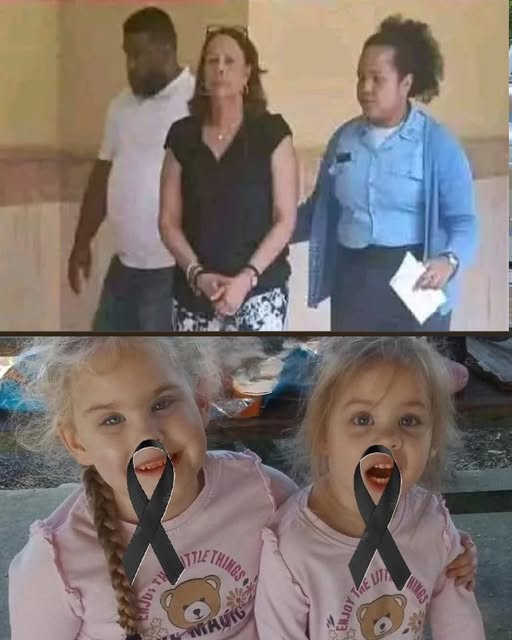In a quiet Texas town, a moment of unimaginable loss reshaped an entire community. What began as a devastating tragedy for one family gradually became a powerful lesson in empathy, emotional awareness, and the transformative power of compassion.
This story, though rooted in heartbreak, is not solely about one family’s pain. It highlights how unspoken emotional struggles can escalate into tragedy—but also how understanding, communication, and community support can prevent similar pain in the future.
A Quiet Morning That Changed Everything
It was an ordinary Texas morning. Sunlight spilled over calm streets, parents prepared their children for school, and life moved forward in its familiar rhythm. Yet, within hours, the tranquility would be shattered by news that left the town reeling.
Stacy Marie Parsons, a twenty-five-year-old mother, walked into a local police station with a confession that would shock the nation. Her four-year-old daughter, Victoria Wyatt, was at the center of what soon became one of the most heart-wrenching stories in recent memory.
According to early reports, Stacy’s demeanor was calm and composed as she approached law enforcement, guiding them to where Victoria had been found. Her outward composure belied a complex inner turmoil, leaving many to wonder about the silent struggles she had endured.
Investigators later revealed that this was not a sudden act of anger but the result of long-standing emotional and psychological strain. The events that followed exposed more than a crime—they revealed the quiet desperation that can exist behind closed doors.
Behind the Smiles: Hidden Family Struggles
To outsiders, Stacy and her husband, Gary Wyatt, appeared to be a young couple building a simple, happy life. They were devoted parents, working hard to provide stability for their daughter.
But beneath this façade were growing cracks—emotional wounds neither knew how to address. Friends and family later recalled subtle tensions, quiet jealousy, and unspoken insecurities.
Stacy often struggled with feelings of isolation and self-doubt. She confided to friends that she sometimes felt overshadowed by her child’s closeness to her husband, expressing fears of losing both. Though deeply loving, Stacy’s emotional health was fragile, and she rarely sought help.
Over time, her occasional sadness deepened into chronic distress. When Gary indicated he wanted to end their marriage, her emotional state intensified. Instead of reaching out, Stacy withdrew inward, engulfed in fear, confusion, and despair.
Experts later suggested that early mental health intervention could have prevented this unraveling. Yet like so many, Stacy struggled in silence, afraid to admit she needed help.
Understanding the Unseen: The Psychology of Emotional Collapse
In the aftermath of tragedies like this, society often reacts with disbelief and anger. How could a parent harm their own child? How could love transform into destruction?
Psychologists urge a deeper understanding. Such incidents are often not born of hatred but of untreated emotional or psychological conditions. These may include severe depression, postpartum struggles, or reactive psychosis—a temporary but profound break from reality triggered by emotional trauma.
In Stacy’s case, jealousy and despair may have been the immediate triggers, but the underlying issues were far more complex. Emotional distress left unchecked can distort perception, trapping a person in irrational thoughts where pain feels insurmountable.
Dr. Elaine Rogers, a licensed family therapist, explains:
“Most people experiencing emotional collapse do not intend harm—they seek relief from unbearable pain. Without coping strategies or access to care, judgment becomes clouded. That’s why early intervention is critical.”
This perspective does not excuse violence—it underscores the importance of prevention. Every act of tragedy begins long before it occurs, rooted in untreated suffering, silence, and stigma.
The Hidden Crisis of Parental Mental Health
Across the United States, countless parents quietly struggle with anxiety, depression, and emotional exhaustion. Parenting is often idealized as joyful, yet for many, it brings isolation, sleeplessness, and immense pressure.
Financial challenges, relationship stress, and societal expectations compound the struggle. Mental health professionals stress that parental well-being is one of the most overlooked public health issues today.
Many parents seek counseling for stress, loneliness, and self-doubt—but many more remain unseen. Experts warn that emotional exhaustion can escalate into impulsive or dangerous behavior. Prevention relies on awareness, empathy, and accessible mental health resources.
Had Stacy Parsons been encouraged to seek support earlier, her story might have unfolded differently.
The Community’s Shock and Healing
When the tragedy became public, the Texas town was plunged into mourning. Residents gathered for vigils, leaving flowers, teddy bears, and heartfelt notes outside the family home. Churches opened their doors, and neighbors found themselves united in grief.
Victoria’s teachers remembered her as a bright, curious child who loved to draw and sing. Her absence left a silence that echoed throughout the community.
Amid the sorrow, an important transformation began: conversations.
Pastors, counselors, and mental health advocates spoke openly about family struggles, emotional instability, and the necessity of addressing pain early.
One counselor noted:
“Healing begins when we stop pretending everything is fine. Asking for help must be normalized, especially for parents who feel overwhelmed.”
The story resonated beyond the town. National media began framing the tragedy not just as a crime, but as a wake-up call—a reminder that mental health is a matter of urgent importance.



